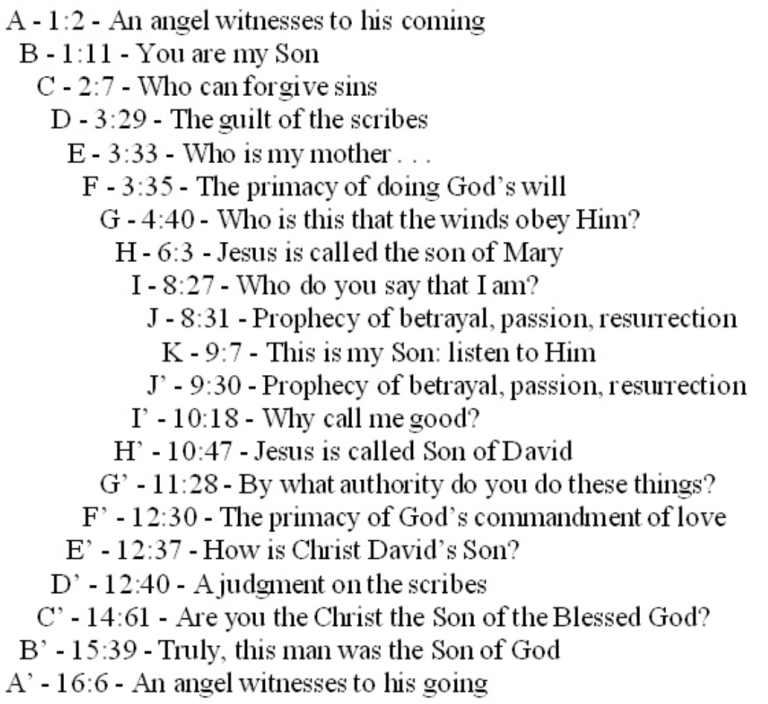A significant point of contention in regard to the book of Hebrews is whether a genuine believer can lose their salvation, or whether falling away from the faith merely evidences the fact that one had never truly come to share in Christ. At the center of this controversy are the warning passages, which are found in Hebrews 2:1-4, 3:7-4:13, 5:11-6:12, 10:19-39, and 12:14-29. The purpose of this paper is to evaluate the Biblical evidence on whether a professing Christian who walks away from the faith forfeits their salvation, with a particular focus on the book of Hebrews.
A fundamental principle of Biblical hermeneutics is that the unclear passages should always be interpreted in light of clearer texts. This follows from the premise that the Biblical texts, being divinely inspired, though composed by different authors, are a unit. That is to say, they are internally consistent in all that they teach. When interpreting difficult and hotly debated texts in the book of Hebrews, therefore, we must ask ourselves first what the rest of the Scriptures teach about this topic. Ideally, we would particularly want to analyse any other books by the same author to provide illumination on his probable intended meaning in the book in which we are interested. Unfortunately, the authorship of Hebrews is widely debated among New Testament scholars and no clear consensus has been reached. However, irrespective of the actual author(s), the text does show evidence of reflecting Pauline thought, and was very likely composed by an associate of Paul, if not by Paul himself [1]. An examination of the Pauline corpus, therefore, can give us some insight into the broader theology of the author of Hebrews. We must then examine the book of Hebrews itself to determine whether other texts, beside the warning passages under investigation, provide illumination on the question before us. Finally, it is incumbent upon us to analyse the context of each of the five warning passages, and how they fit into the general argumentative flow of the book of Hebrews.
A Brief Survey of the New Testament as a Whole
Much could be written on what the New Testament has to say about eternal security. However, since the focus of this paper is the book of Hebrews, I will keep my comments brief. Various statements in the gospels seem to indicate strongly that one cannot lose one’s salvation. For example, Jesus stated that “All that the Father gives me will come to me, and whoever comes to me I will never cast out…And this is the will of him who sent me, that I should lose nothing of all that he has given me, but raise it up on the last day. For this is the will of my Father, that everyone who looks on the Son and believes in him should have eternal life, and I will raise him up on the last day,” (John 6:37-40). Thomas R. Schreiner observes that “the parallelism establishes that comes and believes are synonyms. Thus, to say that those given by the Father ‘will come’ to the Son also means that they ‘will believe’ in the Son.”[2] Jesus further stated that “No one can come to me unless the Father who sent me draws him. And I will raise him up on the last day,” (John 6:44). The two references to “him” in this verse clearly allude to the same individual, namely, he who was drawn. The implication is that the one who is drawn will ultimately be raised up on the last day. Jesus later goes on to say, “My sheep hear my voice, and I know them, and they follow me. I give them eternal life, and they will never perish, and no one will snatch them out of my hand. My Father, who has given them to me, is greater than all, and no one is able to snatch them out of the Father’s hand,” (John 10:27-29). In Greek, the phrase denoting “they will never perish” is οὐ μὴ ἀπόλωνται εἰς τὸν αἰῶνα. The expression οὐ μὴ is a double negative, used in Greek for emphasis. It hence may be best translated “they will never ever perish.” Again, this supports the doctrine of eternal security.
One possible counter example that may be given to these texts in the gospels is the falling away of Judas, one of the Twelve. However, John 6:64-65 suggests that Judas was not a genuine believer even prior to his betrayal of Jesus: “‘But there are some of you who do not believe.’ (For Jesus knew from the beginning who those were who did not believe, and who it was who would betray him.) And he said, ‘This is why I told you that no one can come to me unless it is granted him by the Father.’” The use of the expression “Διὰ τοῦτο…” (“This is why…”) links verse 65 with verse 64, indicating that the reason Jesus foreknew who would forsake the faith is because he knew before time to whom the ability to come to Jesus had been granted by the Father. The foot washing episode at the last supper adds further support to the idea that Judas was not in fact a believer prior to the betrayal: “‘And you are clean, but not every one of you.’ For he knew who was to betray him; that was why he said, “Not all of you are clean,” (John 13:10).
Multiple texts outside of the gospels also support the doctrine of eternal security. In 1 John 2:19, the apostle John also speaks of false prophets, saying, “They went out from us, but they were not of us; for if they had been of us, they would have continued with us. But they went out, that it might become plain that they all are not of us.” This is consistent with the view that falling away is not a forfeiting of one’s salvation but rather an evidence that one has never truly walked with Christ. The only viable alternative interpretation of this text is to read it as saying that they “went out from us because they were no longer of us.”[3] However, this is special pleading, since the Greek word οὐκέτι (“no longer”) is completely absent from this passage.
Peter indicates that believers “by God’s power are being guarded through faith for a salvation ready to be revealed in the last time,” (1 Peter 1:5). The phrase “being guarded” (φρουρουμένους) expresses the concept that the inheritance of a believer is preserved by God. 2 Peter, however, also contains a warning passage against falling away that is not unlike those found in Hebrews (2 Peter 2:20-22): “For if, after they have escaped the defilements of the world through the knowledge of our Lord and Savior Jesus Christ, they are again entangled in them and overcome, the last state has become worse for them than the first. For it would have been better for them never to have known the way of righteousness than after knowing it to turn back from the holy commandment delivered to them. What the true proverb says has happened to them: ‘The dog returns to its own vomit, and the sow, after washing herself, returns to wallow in the mire.’” Peter, then, seems to uphold both that salvation is conditional upon remaining in the faith and that those who are saved will persevere to the end.
What about the Pauline corpus? Does it provide any additional support for eternal security? One helpful text here is Paul’s statement to the Christians in Philippi that “he who began a good work in you will bring it to completion at the day of Jesus Christ,” (Philippians 1:6). Similarly, Paul tells the Corinthian Christians that Christ “will sustain you to the end, guiltless in the day of our Lord Jesus Christ,” (1 Corinthians 1:8, cf. 1 Thessalonians 5:23-24). These affirmations would seem to point in the direction of perseverance in the faith being accomplished by God Himself. Paul also writes to the Romans that “those whom [God] foreknew he also predestined to be conformed to the image of his Son, in order that he might be the firstborn among many brothers. And those whom he predestined he also called, and those whom he called he also justified, and those whom he justified he also glorified,” (Romans 8:29-30). This text sets up an unbroken chain of redemption from God’s active foreknowledge to the calling of the believer, to their justification and ultimate glorification. In other words, everyone who is called and justified by God will certainly be glorified.
Of interest to the present study, however, there are also warning passages to be found in the Pauline corpus. For example, Paul writes “And you, who once were alienated and hostile in mind, doing evil deeds, he has now reconciled in his body of flesh by his death, in order to present you holy and blameless and above reproach before him, if indeed you continue in the faith, stable and steadfast, not shifting from the hope of the gospel that you heard, which has been proclaimed in all creation under heaven, and of which I, Paul, became a minister,” (Colossians 1:21-23). Paul also writes, “For I do not want you to be unaware, brothers, that our fathers were all under the cloud, and all passed through the sea, and all were baptized into Moses in the cloud and in the sea, and all ate the same spiritual food, and all drank the same spiritual drink. For they drank from the spiritual Rock that followed them, and the Rock was Christ. Nevertheless, with most of them God was not pleased, for they were overthrown in the wilderness,” (1 Corinthians 10:1-5). The affirmation of eternal security, together with an affirmation that salvation is conditional upon perseverance, is something also found in Hebrews, as we shall see. Paul, however, holds those two apparently conflicting ideas together. He writes of the gospel “by which you are being saved, if you hold fast to the word I preached to you – unless you believed in vain,” (1 Corinthians 15:2). In other words, while salvation is indeed conditional upon perseverance in the faith, a true believer will not fail to persevere. Of course, this raises a question about the purpose of the warning passages in Hebrews and the rest of the New Testament: Why does one need to be warned if there is no danger of falling away? I shall return to this question later in this paper.
An Analysis of Clear Texts in the Book of Hebrews
Having briefly surveyed Biblical books outside of the epistle to the Hebrews, we must turn our attention to analyse any clear texts within Hebrews itself that might provide illumination as to relevant beliefs the author holds relating to the subject. Indeed, while the unity of Scripture is a justified working assumption that falls out of the doctrine of inspiration, we must be open to the possibility of this methodological presupposition being falsified.
The author of Hebrews tells us that a necessary consequence of coming to share in Christ is holding “our original confidence firm to the end,” (Hebrews 3:14). The implication here is that if one does not persevere in the faith then that individual has not come to share in Christ – confirming the numerous statements in other New Testament literature and thereby supporting our working assumption of Scriptural unity. Indeed, “Careful attention to the wording shows that these lines do not cite what will be true if they hold on, but what is already true of them, if in fact they endure. Their endurance through temptation will be the evidence of their vital connection to Christ. The writer asserts that their continuance in faith will demonstrate that they are members of God’s household, not that it will make it so in the future. Holding on to their confidence will reveal the reality they already have come to share in Christ, not what they will share. By continuing in faith, they demonstrate the work Christ has already begun and will certainly accomplish in them.” [4]
Another relevant text in Hebrews is the author’s statement that “[Christ] is able to save to the uttermost those who draw near to God through him, since he always lives to make intercession for them,” (Hebrews 7:25). This presents a theological conundrum for the view that salvation may be forfeited by falling away, since if Christ is standing making intercession on behalf of those who are His and yet they are falling away, the conclusion seems inescapable that the intercession and prayers of the Son are being rejected by the Father, thereby implying a dissension within the godhead.
Any attempt to understand the soteriology of the book of Hebrews, therefore, must make sense of both the statements given above and the warning passages. It is to these warning passages that I now turn.
Are the Warning Passages Addressing Genuine Believers?
The first question we must address is whether the warning passages are addressed to genuine believers and speak of a falling away of someone who truly believed. Perhaps the most famous of the warning passages is that found in Hebrews 5:11-6:12. Verses 4-6 state that “it is impossible, in the case of those who have once been enlightened, who have tasted the heavenly gift, and have shared in the Holy Spirit, and have tasted the goodness of the word of God and the powers of the age to come, and then have fallen away, to restore them again to repentance, since they are crucifying once again the Son of God to their own harm and holding him up to contempt.” The contextual background of this text seems to be that the audience to whom the author was writing were failing to make spiritual progress and were in a state of spiritual infancy and lethargy (Hebrews 5:11; 6:12). The author thus warns them in the strongest of terms about the danger of falling away, a step they were on the verge of taking. Indeed, the author consistently refers to the potentiality of taking this next step rather than its actuality (Hebrews 2:1; 3:12-13; 4:11, 11, etc). Thus, he says in 6:9, “Though we speak in this way, yet in your case, beloved, we feel sure of better things – things that belong to salvation.”
Throughout the homily of Hebrews, the author alludes to the danger of his audience drifting away from or neglecting the gospel of salvation (Hebrews 2:1,3), of throwing away their confidence, and shrinking back from faith (Hebrews 10:35, 38-39). They were on the verge of unbelief and being hardened by the deceitfulness of sin (Hebrews 3:12-13,19), disobedience (3:18; 4:6, 11), and rejecting God (Hebrews 12:25). Verses 26-31 say, “For if we go on sinning deliberately after receiving the knowledge of the truth, there no longer remains a sacrifice for sins, but a fearful expectation of judgment, and a fury of fire that will consume the adversaries. Anyone who has set aside the law of Moses dies without mercy on the evidence of two or three witnesses. How much worse punishment, do you think, will be deserved by the one who has trampled underfoot the Son of God, and has profaned the blood of the covenant by which he was sanctified, and has outraged the Spirit of grace? For we know him who said, ‘Vengeance is mine; I will repay.’ And again, ‘The Lord will judge his people.’ It is a fearful thing to fall into the hands of the living God.” Verse 29 speaks of how the apostate has “profaned the blood of the covenant by which he was sanctified.” The interpretation of this text rests in large measure on the identification of the referent of the pronoun of this verse. If the pronoun refers to the individual who deliberately carries on sinning, then this would suggest that the text is speaking of a genuine believer, who had undergone sanctification by Christ’s blood, who has fallen into consistent rebellion against God. Alternatively, a minority of interpreters, in order to avoid the force of this text, have suggested instead that the pronoun of verse 29 may be referring to Christ who was sanctified, since Christ is said earlier in the homily to have “learned obedience through what he suffered” (Hebrews 5:8).[5] However, this seems to be an ad hoc interpretation. Randy Booth comments, “Some contend that the words ‘by which he was sanctified’ refer to Jesus (see John 17:19). Such an interpretation cannot be sufficiently supported. Moreover, even if they did refer to Jesus, it must be admitted that the word ‘sanctify’ is used in a different way than it is earlier in Heb. 10:14. Surely the sanctification experience of Jesus is far different from that which we experience.”[6]
Another interpretation, offered by Wayne Grudem, is that the sanctification being referred to here is outward and ceremonial, since it is found in a context where a comparison is being made to the Levitical sacrifices.[7] Thomas Schreiner points out, rightly in my view, two problems with this approach. One is that “a similar argument could be made regarding the cleansing of the conscience, for the author contrasts the cleansing of the conscience with that provided by the Levitical system. Thus, on Grudem’s own terms it is methodologically possible that the cleansing of the conscience is also external and not saving.”[8] Schreiner also points out that “the contrast with Levitical sanctification is intended to emphasize the superiority of Christ’s work. The contrast and comparison with the Levitical system does not indicate that the sanctification provided by Christ is merely external, for throughout Hebrews the old covenant outwardly symbolizes what is now an inward reality through Christ. Grudem, by relegating the sanctification in Hebrews 10:29 to ceremonial sanctification, actually contravenes one of the major themes of Hebrews, namely, what was anticipated in shadowy form in the Old Testament has now become a reality in and through the sacrifice of Christ.”[9]
The other three warning passages also appear to be addressed to believers. In Hebrews 2, the author cautions his readers against “drifting away from” (2:1) and “neglecting” (2:3) the “great salvation.” Given that a major theme of the book of Hebrews is the readers’ spiritual lethargy and disposition to return to the things of the old covenant (which were but shadows of the reality in Christ), the best way to interpret this text, in my judgment, is that it addresses genuine believers who are at risk of falling away. That this warning is addressed to believers is also suggested by the use of the inclusive pronoun ἡμᾶς (“we”) in Hebrews 2:1.
The warning passage in Hebrews 3:7-4:13 also appears to be directed towards believers, since 3:12 says “Take care, brothers, lest there be in any of you an evil, unbelieving heart, leading you to fall away from the living God.” The fact that the author addresses the audience of the warning as ἀδελφοί (“brothers”) suggests that his exhortation is directed towards fellow believers.
Finally, the warning in Hebrews 12:14-29 is best understood as being directed at believers. The author writes “But you have come to Mount Zion and to the city of the living God, the heavenly Jerusalem, and to innumerable angels in festal gathering, and to the assembly of the firstborn who are enrolled in heaven, and to God, the judge of all, and to the spirits of the righteous made perfect, and to Jesus, the mediator of a new covenant, and to the sprinkled blood that speaks a better word than the blood of Abel,” (Hebrews 12:22-24). This strongly suggests that the addressees are genuine believers. In the verse that immediately follows, the author says, “See that you do not refuse him who is speaking. For if they did not escape when they refused him who warned them on earth, much less will we escape if we reject him who warns from heaven,” (Hebrews 12:25). The second person plural pronoun (“you”) in this text refers to the same audience as that in verse 22, indicating strongly that the warning is given to individuals who are true believers.
For the reasons given above, it, therefore, seems most plausible to me that the “falling away” spoken of in Hebrews 6:4-6 and the other warning passages refers to genuine apostasy where a true believer forsakes the gospel of his salvation. If that is indeed the case, then it would appear that salvation is indeed conditional upon perseverance in the faith. What is not as clear, however, is whether this implies that a true believer can forfeit his or her salvation by falling away. It is to this question that I now turn.
Can a Christian Lose Their Salvation?
If, as I have argued, the warning passages of Hebrews are addressed to believers, does this imply that a Christian can lose their salvation? If so, we would be required either to re-evaluate our methodological presumption of the unity of Scripture, or to re-evaluate the numerous texts in the rest of the New Testament that I have argued support eternal security. Some interpreters have gone down this route and have argued that loss of salvation is indeed a possibility for the believer. For example, Scot McKnight has offered an analysis of all five of the warning texts, in which he argues that believers are indeed in view and that a Christian can forfeit his or her salvation by falling away.[10] Howard Marshall likewise argues that a Christian can lose their salvation by falling away, since, he argues, the warning passages are robbed of their meaning if a believer cannot in fact stray from the faith and forfeit their salvation by so doing. [11] Nonetheless, he argues that falling away is the exception rather than the rule, as revealed by the texts which speak of the preserving grace of God. According to Marshall, the relationship between God’s threats and promises is paradoxical and cannot be understood.[12] Marshall also reinterprets texts outside of the book of Hebrews that appear to teach eternal security of the believer. For example, he suggests that the golden chain of redemption spoken of in Romans 8:29-30 can in fact be broken by the believer.[13]
Another approach that has been offered in an attempt to get around the implication that a believer can forfeit their salvation is argued by Charles Stanley[14], R.T Kendall[15], and Zane C. Hodges [16] [17]. These authors argue that the warning passages, though directed at believers, actually concern the loss of rewards, or the loss of a happy and fruitful Christian life. According to this perspective, everyone who ever confesses Jesus as Lord will be saved, no matter what fruit (or lack thereof) is borne in the life of the believer. Kendall, for example, suggests that the kingdom of God spoken of in warning texts such as 1 Corinthians 6:9-11 and Galatians 5:21 refers not to heaven but instead to God dwelling in the hearts of believers[18]. Likewise, when it comes to the warnings in Hebrews, Kendall argues that the texts are warning about the loss of rewards, not their eternal salvation. [19] However, this approach errs in the divorcing of salvation from good works and perseverance in the faith. Numerous texts throughout the New Testament indicate that good works are a necessary accompaniment of saving faith and provide the grounds of assurance of one’s salvation. Indeed, “faith by itself, if it does not have works, is dead,” (James 2:17).
My own opinion is that, though the warning passages are indeed addressed to believers, and though the warning texts refer to a genuine apostasy, a Christian cannot lose their salvation. We have already seen that the apostle Paul upheld both the doctrine of eternal security and the doctrine that salvation is conditional upon perseverance in the faith. If those ideas can indeed be held in harmony, then there is no reason to think that the book of Hebrews teaches that a Christian can forfeit their salvation.
I would argue that the interpretive key is found in Hebrews 3:14, discussed earlier in this paper, which says “For we have come to share in Christ, if indeed we hold our original confidence firm to the end.” This is consistent with what is said in the Pauline corpus concerning apostasy. For example, he writes of the gospel “by which you are being saved, if you hold fast to the word I preached to you – unless you believed in vain,” (1 Corinthians 15:2). The soteriology of the book of Hebrews, therefore, does not appear to be different from that of Paul and Peter. All three uphold both eternal security and the requirement of perseverance for salvation. Both hold those two doctrines together by maintaining that the test of a true believer is that they will persevere in the faith. In numerous texts, Paul indicates that certain behaviours, including perseverance, necessarily accompany true salvation and warns believers to test themselves to ensure that they are indeed in the faith (e.g. 2 Corinthians 13:5-6).
The Purpose of the Warning Passages
This still, however, leaves unaddressed the question of why Paul and the author of Hebrews feel a need to include the warning passages. If true believers will not fail to persevere, what sense is there in warning them that they must persevere in the faith in order to inherit salvation? The answer I find most satisfying is what Thomas Schreiner has called “the means of salvation” view. [20] That is to say, observing and taking heed of the warning passages is the means by which we obtain salvation. This is not works-based salvation, since, in my view, perseverance is a necessary expression of true faith and anchored in the sustaining grace of God. While works are necessary for salvation, those works are not meritorious. Rather, works are a necessary accompaniment of saving faith. So powerful is God’s grace that it not only imparts to the believer salvation apart from any meritorious works on our part, but it also regenerates the believer. Indeed, “what is striking about the Scriptures is that the passages concerning the steadfastness of God’s faithfulness and the passages with admonitions are inseparable. We do not encounter a single passage that would allow anyone to take the immutability of the grace of God in Christ for granted.”[21]
A helpful illustration to convey the purpose of the warning passages is to be found in the shipwreck of Paul on route to Rome in Acts 27:13-44. Paul says to the sailors, “I urge you to take heart, for there will be no loss of life among you, but only of the ship,” (verse 22) since an angel had told Paul that “God has granted you all those who sail with you,” (verse 23). Nonetheless, “Paul said to the centurion and the soldiers, ‘Unless these men stay in the ship, you cannot be saved,’” (verse 31). Here, Paul has been guaranteed by God that all of those with him on the ship will be saved. However, Paul also candidly warns the sailors that to be saved they must remain with the ship. In other words, their salvation was conditional upon their perseverance with the ship, but God fulfilled the condition by causing them to persevere. God uses means to accomplish His ends, and in this case, God used Paul’s warning to those with him on the ship that they needed to remain with the doomed vessel in order to be saved. I would argue that God uses means to bring about the perseverance of those who are being saved. One of these means is through the warning passages in Hebrews and elsewhere in Scripture.
Some may be concerned that God guaranteeing that true believers will persevere in the faith – and, indeed, God’s sovereign election of His saints – conflicts with human free will. However, the compatibilist view is that God works through our free choices. So exhaustive is God’s knowledge of His creatures, even before they are born, that He knows how they will behave given different contingent counterfactuals. Thus, using this divine middle knowledge, God can create a world in which His purposes are accomplished (including the salvation and perseverance of His elect) without compromising human free will.[22]
The idea that salvation is conditional upon perseverance in the faith is further supported by the Olivet discourse, where Jesus says, “See that no one leads you astray (Mark 13:5). Jesus goes on to speak of the terrible persecution that Jesus’ followers are to endure. He says that “you will be hated by all for my name’s sake. But the one who endures to the end will be saved” (Mark 13:13). However, notice how Jesus indicates that God also uses means by which the endurance to the end is brought about. He goes on to say that “in those days there will be such tribulation as has not been from the beginning of the creation that God created until now, and never will be. And if the Lord had not cut short the days, no human being would be saved. But for the sake of the elect, whom he chose, he shortened the days,” (Mark 13:19-20). In other words, God would providentially shorten the days of persecution for the sake of His elect, so that they would indeed persevere to the end.
Conclusion
In summary, I have argued that while the warning passages in Hebrews and elsewhere in the New Testament are directed towards believers and concern the real danger of apostasy, the New Testament teaches that this condition is fulfilled by God Himself, who causes true believers to persevere in the faith. If, then, someone fails to persevere in the faith, that provides evidence that they were never truly saved. I have argued that the warning passages serve as part of the means through which God ensures the perseverance of His saints. The Lord’s sheep hear the voice of the shepherd, which warns and admonishes them, lest they should stray from the path of salvation and perish.
Footnotes
[1] David Alan Black, “Who Wrote Hebrews? The Internal and External Evidence Reexamined,” Faith & Mission 18, no. 2 (Spring 2001): 3-26.
[2] Thomas R. Schreiner, “Perseverance and Assurance: A Survey and a Proposal,” The Southern Baptist Journal of Theology 2, no. 1 (Spring 1998): 32-62.
[3] Dale Moody, The Word of Truth: A Summary of Christian Doctrine Based on Biblical Revelation (Grand Rapids, MI: Wm. B. Eerdmans-Lightning Source, 1981), 357.
[4] Buist M. Fanning, “A Classical Reformed View,” in Four Views on the Warning Passages in Hebrews, ed. H. W. Bateman IV (Grand Rapids, MI: Kregel Academic & Professional, 2007), 207.
[5] James R. White, “The Newness of the New Covenant: Better Covenant, Better Mediator, Better Sacrifice, Better Ministry, Better Hope, Better Promises (Part II),” Eamon Younis, March 30 2020, http://eamonyounis.blogspot.com/2020/03/the-newness-of-new-covenant-better_30.html.
[6] Randy Booth, “Covenant Transition,” in The Case for Covenantal Infant Baptism, ed. Gregg Strawbridge (Phillipsburg, NJ: P&R Publishing, 2003), 298.
[7] Wayne Grudem, “Perseverance of the Saints: A Case Study of Hebrews 6:4-6 and the Other Warning Passages in Hebrews,” in The Grace of God, The Bondage of the Will: Biblical and Practical Perspectives on Calvinism, Volume One, ed. Thomas R. Schreiner and Bruce A. Ware (Grand Rapids: Baker, 1995), 177-178.
[8] Thomas R. Schreiner, “Perseverance and Assurance: A Survey and a Proposal,” The Southern Baptist Journal of Theology 2, no. 1 (Spring 1998), 49-50.
[9] Ibid., 50.
[10] Scot McKnight, “The Warning Passages of Hebrews: A Formal Analysis and Theological Conclusions,” Trinity Journal 13 (1992) 21-59.
[11] Howard Marshall, Kept by the Power of God: A Study of Perseverance and Falling Away (Minneapolis: Bethany Fellowship, 1969), 196-216.
[12] Ibid., 210-211.
[13] Ibid., 103.
[14] Charles Stanley, Eternal Security: Can You Be Sure? (Nashville: Thomas Nelson, 1990).
[15] R.T. Kendall, Once Saved, Always Saved (Chicago: Moody Press, 1983).
[16] Zane C. Hodges, The Gospel Under Siege: A Study on Faith and Works (Dallas: Redencion Viva, 1981).
[17] Zane C. Hodges, Absolutely Free: A Biblical Reply to Lordship Salvation (Dallas: Redencion Viva, 1989 and Grand Rapids: Zondervan, 1989).
[18] R.T. Kendall, Once Saved, Always Saved (Chicago: Moody Press, 1983), 125-130, 159-184.
[19] Ibid., 177-178.
[20] Thomas R. Schreiner, “Perseverance and Assurance: A Survey and a Proposal,” The Southern Baptist Journal of Theology 2, no. 1 (Spring 1998), 32-62.
[21] Gerrit Cornelis Berkouwer, Faith and Perseverance, trans. R. D. Knudsen (Grand Rapids: Eerdmans, 1958), 116-117.
[22] Kenneth Keathley, Salvation and Sovereinty: A Molistinist Approach (Nashville, TN: B&H Academic, 2010).
Recommended resources related to the topic:
How to Interpret Your Bible by Dr. Frank Turek DVD Complete Series, INSTRUCTOR Study Guide, and STUDENT Study Guide
How Philosophy Can Help Your Theology by Richard Howe (MP3 Set), (mp4 Download Set), and (DVD Set)
_____________________________________________________________________________________________________________________________________________________
Dr. Jonathan McLatchie is a Christian writer, international speaker, and debater. He holds a Bachelor’s degree (with Honors) in forensic biology, a Masters’s (M.Res) degree in evolutionary biology, a second Master’s degree in medical and molecular bioscience, and a Ph.D. in evolutionary biology. Currently, he is an assistant professor of biology at Sattler College in Boston, Massachusetts. Dr. McLatchie is a contributor to various apologetics websites and is the founder of the Apologetics Academy (Apologetics-Academy.org), a ministry that seeks to equip and train Christians to persuasively defend the faith through regular online webinars, as well as assist Christians who are wrestling with doubts. Dr. McLatchie has participated in more than thirty moderated debates around the world with representatives of atheism, Islam, and other alternative worldview perspectives. He has spoken internationally in Europe, North America, and South Africa promoting an intelligent, reflective, and evidence-based Christian faith.
Original Blog Source: https://bit.ly/3bo21og













